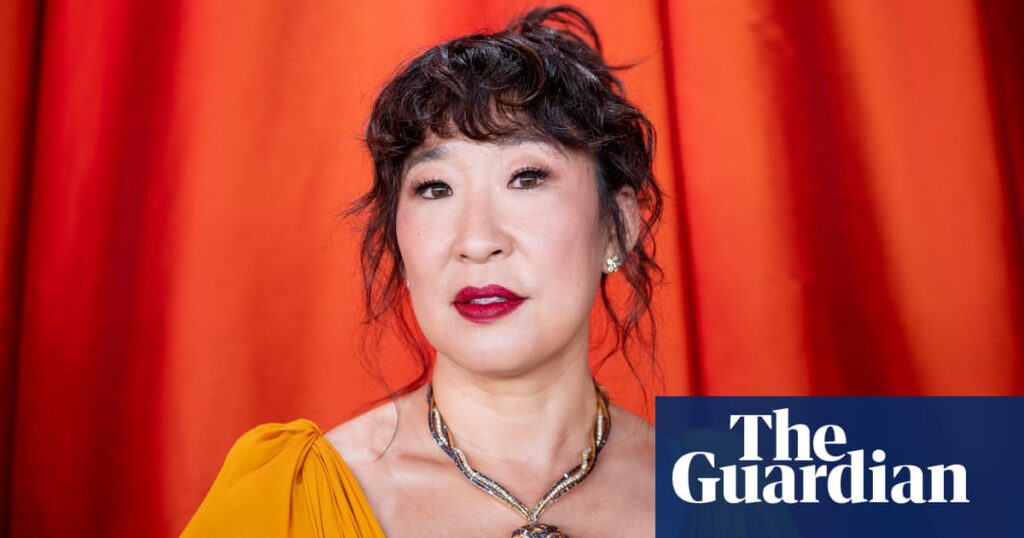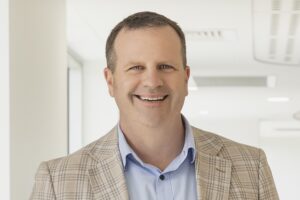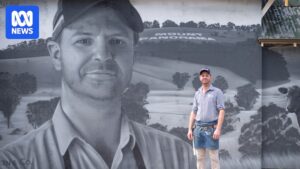
This summer, Sandra Oh stood behind a lectern at a graduation ceremony in New Hampshire, ready to inspire university graduates at a time marked by global uncertainties. With candor, she shared her personal battles with depression and anxiety, urging the audience to embrace discomfort and kindness to maintain humanity in a world where many leaders “claim power through fear and oppression.” Her speech culminated in a viral moment as she encouraged everyone to “Dance it out!” to David Guetta’s “Titanium,” a nod to her iconic character Cristina Yang from Grey’s Anatomy.
“I was very, very, very nervous about it,” Oh admitted, reflecting on her efforts to connect with young adults concerned about their futures amid global crises. “The world is burning!” she imagined their thoughts, acknowledging the heavy burden of current events. Yet, her message was one of finding joy, even in adversity. “Sitting there trying to bear the pain in the world,” she said, encapsulating her philosophy, “will help you figure out how to be in the world.”
From Personal Struggles to Public Advocacy
Oh’s speech, marked by vulnerability and compassion, aligns with her public persona. Born in Ottawa to Korean immigrant parents, she has become a celebrated figure in Hollywood, known for her roles in Grey’s Anatomy and Killing Eve, and as the first Asian woman to win multiple Golden Globes. Her advocacy for broader representation in the industry is well-documented, with fans donning T-shirts bearing her famous Emmy remark, “It’s an honour just to be Asian.”
Speaking from New York, Oh’s conversation is punctuated with laughter and introspection, touching on topics from climate change to AI and racial equality. Her latest project, the indie Canadian sci-fi film Can I Get a Witness?, explores themes of life and death in a post-apocalyptic world. Set in 2040, after an AI-engineered disaster, the film imagines a society where peace is achieved but at the cost of government-mandated deaths at age 50. Oh plays Ellie, a survivor guiding her daughter in documenting “end of life” ceremonies.
Exploring New Narratives and Representation
“I was most interested in the script’s contemplation of dying,” Oh explained, noting how the awareness of mortality might alter one’s approach to life. The film’s urgency was underscored during an early screening in Santa Barbara amidst wildfires in Los Angeles. “It is what’s happening right now,” she remarked, emphasizing the film’s relevance to current global challenges.
Oh’s engagement with technology’s impact on human interaction is evident in her request to include AI in the film’s script. “Phones and social media,” she noted, “are retraining human beings.” Her response to this shift is to focus on “small, profoundly meaningful” projects, like her role in Twelfth Night at New York’s Delacorte Theater, which she describes as an opportunity for genuine human connection.
Breaking Barriers in Hollywood
Oh reflects on her career, recalling an early setback when an agent in LA advised her to return to Canada due to a lack of opportunities for Asian actors. Decades later, receiving the script for Killing Eve, she was surprised to learn she was cast as the lead. “Honey,” her agent said, “It’s Eve.”
Her commitment to projects from the Asian diaspora is evident in her roles in Turning Red, Umma, and Quiz Lady. Each role, unlike her earlier work, acknowledges her character’s heritage. Oh recalls the significance of Everything Everywhere All at Once sweeping the Oscars, highlighting the importance of community in building a diverse industry. “When I started, actors like Daniel Dae Kim or John Cho – we’d known each other forever, but we never shared a stage or set,” she said, emphasizing the shift towards inclusivity.
Despite challenges, Oh remains optimistic about the future of diversity in Hollywood. “The door that’s opened in the past 10 years – or not even that – seven years – remains open,” she hopes, noting the progress made by those who have already gained a foothold in the industry.
Looking Forward
Oh’s reflections on her career and the industry are encapsulated in a memorable quote about moving beyond the constraints of traditional power structures. “The old white patriarchy hasn’t knocked on my door yet!” she quipped, emphasizing her focus on empowering young women who see potential in her. Her diary entries, revisited during a live podcast event, reveal the pain of early rejection but also the resilience that has defined her journey.
As she considers what she would tell her younger self, Oh speaks with tenderness. “I’m so sorry it’s so painful right now,” she would say, acknowledging the uncertainty of change but affirming its inevitability. “The impermanence of things,” she concluded, “is hard to figure out. I think that takes a lifetime.”







